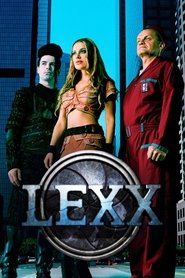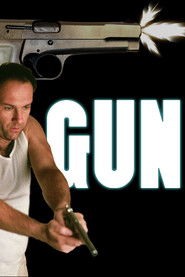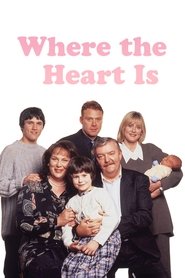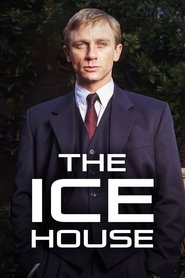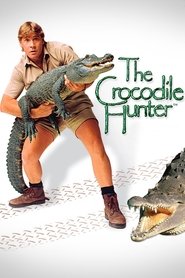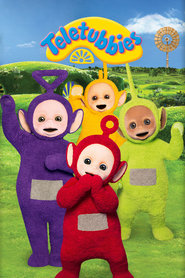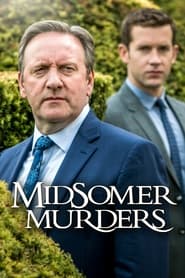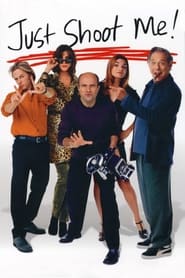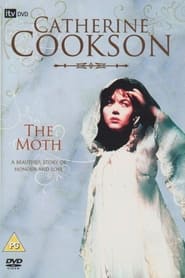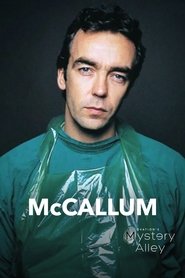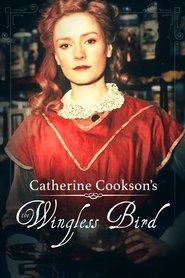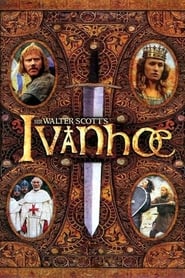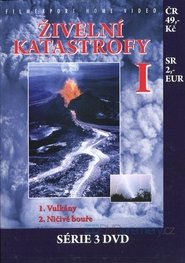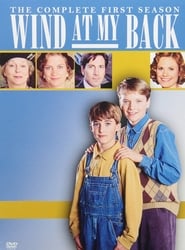New TV Series on Free Services - Page 319
-
Lexx
1997
Lexx
1997
star 7A Time Prophet predicted that Kai would be the one to destroy the divine order in the league of the 20,000 planets, someday that will happen, but not today. Today a cowardly security guard, an undead assassin, a female with a body designed for sex and a robot head madly in love with her all make up the crew of the spaceship Lexx, the most powerful weapon in the two universes. -
Gun
1997
Gun
1997
star 4Gun is an American television anthology series which aired on ABC on Saturday night from April 12, to May 31, 1997 at 10:00 p.m Eastern time. The series lasted six episodes, each directed by a well-known director, before being cancelled. Each episode involves the same semi-automatic pistol as an important part of the plot. The characters each episode are completely different and appeared unrelated to those who appeared in other episodes. The series was produced by Robert Altman and attracted numerous recognizable stars including Fred Ward, Kathy Baker, Carrie Fisher, Daryl Hannah, Randy Quaid, and Martin Sheen, as well as James Gandolfini in his first television appearance. The theme song was a cover of The Beatles' "Happiness Is a Warm Gun", performed by U2. -
Where the Heart Is
1997
Where the Heart Is
1997
star 6.5Where the Heart Is is a British television family drama series set in the fictional Yorkshire town of Skelthwaite. It focuses on the professional and personal lives of the district nurses who work in the town. -
The Ice House
1997
The Ice House
1997
star 6.1A corpse is found in an ice house ten years after Phoebe's husband went missing. The police seem determined to accuse Phoebe, to the delight of the villagers. -
The Crocodile Hunter
1997
The Crocodile Hunter
1997
star 7.6Australian host Steve Irwin and his wife Terri run a wildlife refuge. Their shared passion is educating the world about wildlife, including the much feared crocodile and numerous venomous snakes. Steve's specialty is the capture and relocation of crocodiles. No animal appears too threatening to Steve, his true respect for animals is the foundation for everything he does. -
No Sweat
1997
No Sweat
1997
No Sweat is a British television children's comedy show that went to air on the BBC's analogue channels in the late 1990s. The show followed the exploits of struggling boy band, North & South, consisting of Jimmy, Greg, Miles and Giles, who were a band in real life, scoring four United Kingdom Top 40 hits between 1997 and 1998 including a #7 debut single "I'm A Man Not A Boy" in May 1997. -
Teletubbies
1997
Teletubbies
1997
star 4.4Pre-school fun, fantasy and education with colourful rotund characters Tinky Winky, Dipsy, Laa-Laa and Po in a magical land called Teletubbyland. -
Midsomer Murders
1997
Midsomer Murders
1997
star 7.5The peacefulness of the Midsomer community is shattered by violent crimes, suspects are placed under suspicion, and it is up to a veteran DCI and his young sergeant to calmly and diligently eliminate the innocent and ruthlessly pursue the guilty. -
Robert Ludlum's The Apocalypse Watch
1997
While gathering data on political bribes in Europe, CIA agent Harry is exposed to brainwashing. When killed, his CIA analyst brother and agent Karin try to find the killers etc. Is there a powerful neo-Nazi organization? CIA leak? -
Just Shoot Me!
1997
Just Shoot Me!
1997
star 6.6See the inner workings of a high-style magazine owned by Jack Gallo, who has hired his quick-tempered but talented daughter, Maya, to write for the publication. Challenging her at every turn is Nina, a vain and superficial former model. Then there's photographer Elliot, a man who is very popular with his portrait subjects as well as other women. completing the core staff is her father's assistant, Dennis, a glorified secretary who is generally disrespectful to one and all. -
The Moth
1997
The Moth
1997
star 7Robert Bradley leaves the shipyards to work in his uncle's furniture business but soon finds himself at odds with the old man. So he becomes a servant for the destructive Thormans, and falls for the lady of the house, Sarah. But in 1913 this upstairs/downstairs romance can only lead to disaster. -
McCallum
1997
McCallum
1997
star 7.3McCallum is a British television series that was produced by STV Productions. Dr Iain McCallum was the original lead character, played by John Hannah. McCallum was a forensic pathologist who traveled by Triumph Motorcycle, and solved murders. The character had romantic involvements with two of the other principal characters, Joanna, and later Angela. The last episode did not include McCallum and Angela as the story stated that they had taken jobs in America. They were replaced by Dr. Dan Gallagher and Dr. Charley Fielding. -
The Wingless Bird
1997
The Wingless Bird
1997
star 4.5On the eve of World War I, Agnes Conway manages both the business and the problems of her troubled family. She finds the strength to break class barriers and help her sister Jessie marry a good boy from a family of dockside toughs. Is she strong enough to break them again when Charles Farrier, a gentleman, courts her over his parents' opposition? Agnes faces an added dilemma when she finds her heart divided between Charles and his soldier brother Reginald. -
Ivanhoe
1997
Ivanhoe
1997
star 6.9The epic tale of the idealistic young knight Ivanhoe and his battle against the evil Templar Bois-Guilbert. Caught between the rivalries and religious struggles are Ivanhoe's betrothed Rowena and the brave, beautiful Jewess healer Rebecca, who wins Ivanhoe's heart with her courage. This grand six-part adaptation of Sir Walter Scott's rousing adventure of the Middle Ages is set against the historical backdrop of a Britain straining under the corrupt rule of Prince John while Richard the Lionhearted fights in the Crusades. -
King of the Hill
1997
King of the Hill
1997
star 7.4Set in Texas, this animated series follows the life of propane salesman Hank Hill, who lives with his overly confident substitute Spanish teacher wife Peggy, wannabe comedian son Bobby, and naive niece Luanne. Hank has conservative views about God, family, and country, but his values and ethics are often challenged by the situations he, his family, and his beer-drinking neighbors/buddies find themselves in. -
In Nelson's Footsteps
1997
In this three part series, our presenter Colin White follows in the footsteps of Horatio Nelson in his native Britain, to explore the influences which shaped his character and formed his genius. In the opening episode Colin White goes to where Nelson was born. In episode 2 we discover the problems that he experienced in his personal life. But his naval career went from strength to strength. In the last episode Colin describes the last few hours of Nelson's life. -
The Good Life
1997
The Good Life
1997
For Britain's city dwellers the temptation to exchange the daily grind for an English country living is great. The Good Life follows four couples who have headed for the hills. Discover the 'The Good Life' in the beautiful English countryside. -
Anatomy of a Disaster
1997
star 10Anatomy of a Disaster is a monthly documentary created by GMA Network. That brings environmental awareness to television viewers as it unravels some of the most destructive natural disasters in our planet’s history the show will hosted by the Greenpeace advocate Richard Gutierrez. -
Animal X
1997
Animal X
1997
Animal X is an Australian made documentary television series that aired in more than 120 countries. It began in 1997 with its first series of thirteen half-hour episodes. In 2002, Discovery Channel in the U.S. co-produced the 2nd series of 13 half-hour episodes with the creators of the series, Australia's Storyteller Productions, for Animal Planet. At this point Animal X episodes generally had 3 stories, with one exception: "The Skookum Cast". This was a joint expedition between Animal X and the BFRO which discovered the Skookum Cast, said to be an imprint of the body of a bigfoot. -
Wind at My Back
1996
Wind at My Back
1996
star 9A recently widowed mother loses her children to a cold mother-in-law in Ontario during the Great Depression of the 1930s. Based loosely on the books "Never Sleep Three in a Bed" and "The Night We Stole the Mounties’ Car" by Max Braithwaite
 Netflix
Netflix
 Amazon Prime Video
Amazon Prime Video
 Apple iTunes
Apple iTunes
 Apple TV Plus
Apple TV Plus
 Disney Plus
Disney Plus
 Google Play Movies
Google Play Movies
 Paramount Plus
Paramount Plus
 Hulu
Hulu
 HBO Max
HBO Max
 YouTube
YouTube
 fuboTV
fuboTV
 Peacock
Peacock
 Peacock Premium
Peacock Premium
 Amazon Video
Amazon Video
 The Roku Channel
The Roku Channel
 AMC+
AMC+
 Kocowa
Kocowa
 Hoopla
Hoopla
 The CW
The CW
 Vudu
Vudu
 Starz
Starz
 Showtime
Showtime
 PBS
PBS
 Pantaflix
Pantaflix
 FXNow
FXNow
 Tubi TV
Tubi TV
 Kanopy
Kanopy
 Comedy Central
Comedy Central
 Crunchyroll
Crunchyroll
 Microsoft Store
Microsoft Store
 Redbox
Redbox
 Sun Nxt
Sun Nxt
 ABC
ABC
 DIRECTV
DIRECTV
 Crackle
Crackle
 Fandor
Fandor
 Plex
Plex
